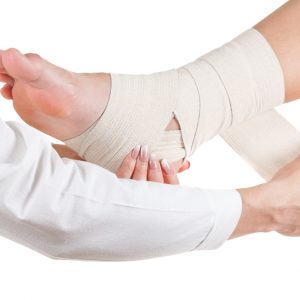As you age, you begin to feel many changes in your body. One cause for discomfort can be in the joints. They are immensely important for daily movements, and it is crucial to keep them in tip-top condition as you age. Just like an old door with creaky hinges, your joints can lose lubrication as you age, causing discomfort and sometimes, pain and swelling. Here is how you can look after your joints as you age so that you move more gracefully than a rusty door!
Get Moving

Contrary to what you may believe, moving your joints more often is actually good for them. The movements you make act to pump natural lubrication to the joints and help provide relief by also releasing more water into the lubricating fluid, helping the lubricant spread more evenly and easily over the cartilaginous surfaces. A good idea is to make regular joint movement a habit every morning when you get out of bed. The plus side is that a little stretching and moving about has the benefit of an increase in blood flow, too, which is very welcome!
Consume Healthy Fats
If you have heard of how healthy omega-3 fatty acids help curb inflammation of the blood vessels, then you will be glad to know that it performs the same job in your joints as well! These fatty acids can be obtained through your diet — by consuming fatty fish like trout, salmon, and mackerel, among others, and by snacking on nuts. A drizzle of olive oil or some chopped avocado in your salad is a great way of obtaining omega-3 as well, and it is more delicious than swallowing a DHA supplement!
Take Helpful Supplements

The next time you’re at the drug store or pharmacy and you’re staring at the shelves heavy laden with all sorts of vitamins and supplements, with many claiming to help with your joints, remember this: the best supplements you can take for optimal joint care is one that combines glucosamine sulfate and chondroitin. These supplements have a two-fold effect on your joints. Firstly, they help increase the lubrication of the joint, and secondly, they help decrease inflammation and pain. It has been reported that over long-term use, these supplements can actually repair osteoarthritic damage in the joints. A good dosage would be about 1500mg of either Osteo Bi-Flex, Triple Flex, Cosamin DS, or any other supplement with the same composition.
Food to Avoid
We all know the important role that diet plays in our health, so here are some food items that you need to avoid if you want to skip the pain of inflamed joints. These foods actually contain substances that contribute to inflammation, worsening the symptoms of joint pain. The first one is processed sugar which prompts the release of compounds called cytokines in the body. The next food item to be wary of is saturated fats which are the culprits of a whole host of health issues. This means steering clear of pizza and red meat, among other things! The next food to avoid consuming is refined carbohydrates like white rice, white bread, and potato chips which also stimulate inflammation.
It is commonly believed that citrus fruits, dairy, and nightshade vegetables should be avoided when one is looking after their joint health, but there is actually no scientific evidence to support this. In nightshade vegetables, a compound called solanine is commonly blamed, but science does not confirm that it contributes to arthritis pain at all. Dairy, on the other hand, is digested differently by people, so it will have to be determined by elimination whether or not avoiding dairy is helpful in alleviating your symptoms of joint pain specifically. Citrus fruits are high in natural anti-inflammatories, antioxidants, and vitamin C. There is no scientific or medical reason to avoid citrus when they are preventing inflammation.

In your efforts to improve the health of your joints, it can be easy to neglect one essential factor of health that has a significant effect on joint health – your weight. If you are overweight, your body is struggling to carry around extra pounds on its frame, and so your joints will be under pressure which can worsen any existing discomfort. Eat a balanced diet to maintain a healthy weight and help reduce the symptoms of poor joint health.





